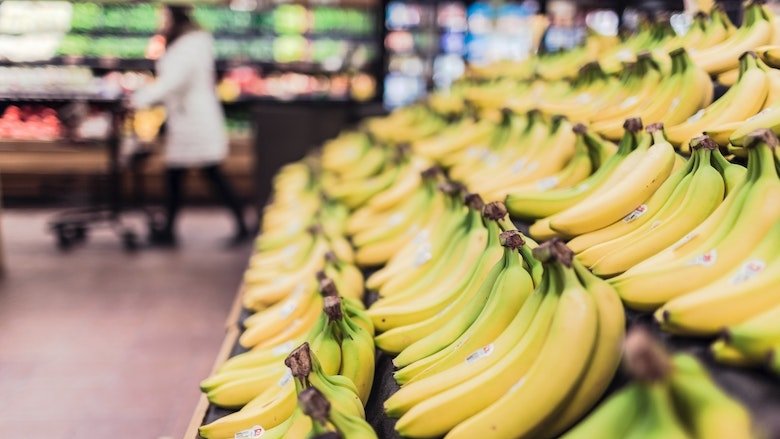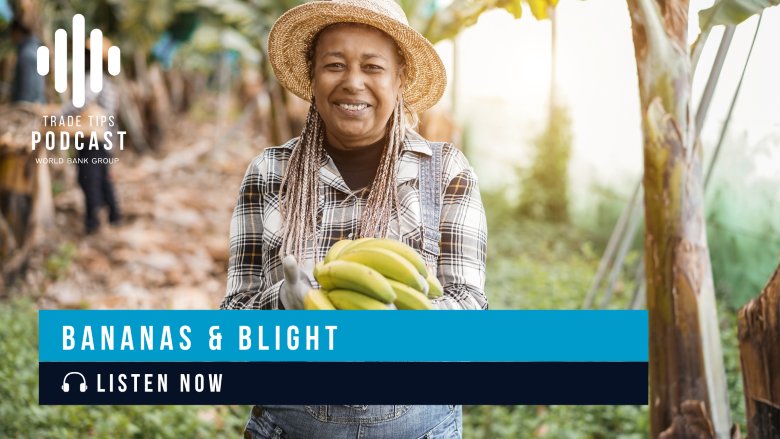WASHINGTON, DC, April 1, 2023 – In many ways, there isn’t a better example of the complexity of global trade than the banana, the world’s most exported fruit.
“I always say that if you look at a banana on the shelf in the United Kingdom for example, half of the cost of the banana is the food, and half is shipping and logistics."
Jeffrey Hall, the chairman of Kingston Wharves and chief executive officer of Jamaica Producers Group - which is involved in pretty much every aspect of trade you can imagine - including exporting bananas, explains.
“We are in the thick of the business of trade,” he says from his office right at the port in Kingston, Jamaica.
Bananas, a crop exported from the Caribbean for centuries, provide countless jobs across continents. But getting fruit from one side of the world to another, isn’t easy.
It used to be what he calls a “treasure hunt of stamps and documents” to get permissions and paperwork for his various businesses, but Jeffrey says that things are improving thanks to trade agreements, like the World Trade Organization Trade Facilitation Agreement (WTO TFA). “I don’t think we could do it without a mindset of trade facilitation,” he adds.
Trade facilitation is also crucial for another aspect of the global banana trade, and that is, keeping pests and diseases from spreading.
Bananas, shipped around the globe in huge volumes, have become something of a victim of their own success, as the banana variety most consumers worldwide prefer currently is the Cavendish, with its smooth yellow skin. This means many plantations are monocultures, which make them vulnerable.
The Cavendish variety was cultivated to be resilient to a highly contagious disease, caused by a fungus - called Tropical Race 4 (TR-4). The TR-4 resistant Cavendish replaced the previous world leader the Gros Michel, which was the banana of choice in the early twentieth century, until it was all but wiped out in many areas.
But, a new strain of the fungus has been obliterating banana plantations in some parts of the world, including in Africa, Asia and the Middle East. It is spread with soil, and procedures and border management are crucial in keeping the disease from spreading. This is where another aspect of trade facilitation, sanitary and phytosanitary (SPS) measures, comes in.
Altus Viljoen is an expert in the banana sector and TR-4, he’s from the University of Stellenbosch in South Africa.
“This is a serious disease make no mistake… we have seen big plantations destroyed within four years. The economic impact and impact on job losses is huge.”


